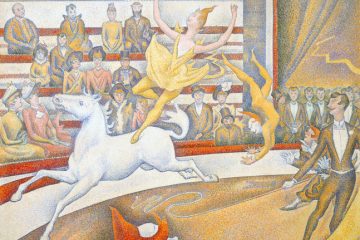The European Network of Focal Points (ENFP) held a meeting on the theme of intangible cultural heritage and climate change on 30 October 2024. Once again, this meeting was an opportunity to listen to enriching and inspiring presentations from our colleagues and to share news about the network and living heritage in Europe.
The meeting opened with words of welcome from the Steering Committee and Susanne Schnuttgen, representative of the UNESCO Living Heritage Entity at the meeting.

The celebration of the first International Day for Intangible Cultural Heritage, on 17 October 2024, was an important event celebrated by many European colleagues. Leena Marsio (FP Finland) emphasised the importance of this celebration for safeguarding ICH and promoting the Convention.
After that, we were able to listen to an enriching panel on the contribution of living heritage to the sustainability of landscapes and the mitigation of climate change. To open this panel, Přemysl Mácha (Institute of Ethnology – Czech Academy of Sciences) presented the work on safeguarding intangible cultural heritage and climate change carried out by the UNESCO expert group. Meeting in June at UNESCO headquarters in Paris, and then online, the experts produced a guidance note that will be presented to the Intergovernmental Committee in December. The aim is to provide a scientific basis for States to come up with solutions for safeguarding intangible cultural heritage in the context of the climate emergency.
Cristina Biasetto (FP Austria) and Julien Vuilleumier (FP Switzerland) talked to us about traditional irrigation. This practice, based on a fundamental knowledge of nature and community collaboration, is sustainable because it uses natural water sources, which it perceives as a common good, while respecting the seasons and the environment. It also creates biodiversity by improving soil quality and adapting to the terrain. Finally, the land is managed on a small scale by communities in cooperatives. Today, practitioners are faced with a number of challenges, including the extreme weather conditions created by climate change and tensions with environmental and agricultural policies. Work is underway to extend this multinational registration to three other European countries: France, Greece and Spain.
Ahmet Tan, expert at the Directorate General of Living Heritage and Cultural Activities at the Türkiye Ministry of Culture and Tourism, discussed the impact of climate change on traditional olive growing in Türkiye and how this tradition is helping to combat climate change. Inscribed on the List of Intangible Cultural Heritage in Need of Urgent Safeguarding by the last Committee, traditional olive growing is an ecologically responsible and socially sustainable production method that can adapt to climate change.
Finally, Mirela Hrovatin (FP Croatia) presented her work on the art of dry stone walling. This skill, which has been on the Intangible Cultural Heritage List since 2018, illustrates the important role that living heritage can play in climate resilience. As a sustainable material, this tradition is important “to prevent landslides, floods and avalanches, combat erosion and land desertification, improve biodiversity and create suitable microclimatic conditions for agriculture”. Finally, cross-sector cooperation between agriculture, culture and education, with a large network of experts and practitioners, has been developed to promote this know-how.
This meeting was also special because it was the last to be organised by the current Steering Committee. After three years of activity, the time has come to renew or reaffirm the members of the Steering Committee.
As the renewal process is underway, an online meeting will be held on 20 October (9:30-10:30am CET) (more information to come).
More info:
European Network of Focal Points (ENFP)
International Day of Intangible Cultural Heritage
Meeting of experts (category VI) on Safeguarding intangible cultural heritage and climate change
Traditional irrigation: knowledge, technique, and organization
Traditional knowledge, methods and practices concerning olive cultivation





